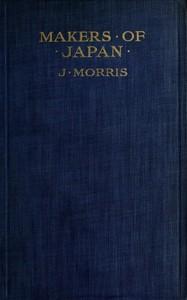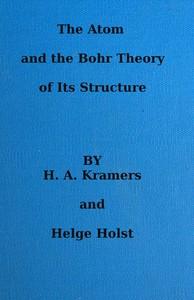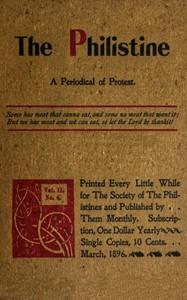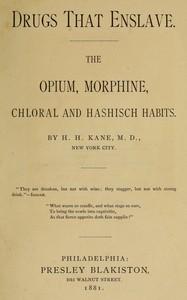|
|
Read this ebook for free! No credit card needed, absolutely nothing to pay.Words: 66563 in 17 pages
This is an ebook sharing website. You can read the uploaded ebooks for free here. No credit cards needed, nothing to pay. If you want to own a digital copy of the ebook, or want to read offline with your favorite ebook-reader, then you can choose to buy and download the ebook. and with his reception as the first foreign prince to visit Japan under the new order of things created by the Restoration Prince Iwakura had all to do. At the time he gracefully said that the Government had given to the reception of the English prince the most anxious consideration, inasmuch as it was of all things wished that the utmost friendship should be shown towards Foreign Powers, and the Government was ready to promote the formation of intimate relations even though in doing so they might have to sacrifice to some degree the ancient usages and ideas, so much so that the Emperor would be compelled to observe an altogether new etiquette in receiving Prince Alfred in a way that would be acceptable to Great Britain, but that it afforded intense gratification to reflect that this compliment would in the first instance be paid to an English prince, and would form some slight acknowledgment of the abundant proofs which Japan had received of the thorough good will of England and of the Government of Queen Victoria. Interest will always attach to this first meeting of the Japanese Emperor with a member of another ruling house, for it signalised a vast alteration in the views of the Japanese aristocracy as well as the beginning of cordial relations between the two powers which have with the lapse of time grown closer and closer, and promise to be eternal. It is due to the memory of Prince Iwakura to show, as it has here been sought to do, that he most clearly appreciated the benefits which were certain to accrue from the maintenance of a mutual understanding between his country and ours, and did all that it was feasible in that epoch to do to cement the ties which were thus early growing up between nations destined to be one day absolutely allied. In 1870 Prince Iwakura was despatched on an important mission to the lord of Satsuma province, being the bearer of a request from the Emperor that the daimio Shimadzu Saburo, then dwelling at Kagoshima, should come to Tokio and give his assistance in affairs of State, by taking his seat at the Grand Council. The Emperor wrote a special letter to Shimadzu,--who was virtually all powerful in Satsuma, though nominally the uncle and truly the father of the daimio of the clan,--to the effect that the Dainagon Tomiyoshi was charged to convey the expression of his Majesty's esteem and calling upon him to join in the great work of reforming the national institutions. To Iwakura the Imperial Commission was given in these terms:-- TO IWAKURA DAINAGON: You will therefore proceed thither and worship in obedience to this desire of his Majesty. SANJO SANETOMI: TOKUDAIJI SANENORI: The Satsuma lord found an excuse for non-compliance at the time with the sovereign's command, though he ultimately went up to Tokio with a retinue of armed samurai, at a date when the wearing of two swords in the girdle had become an anachronism, and then made but a brief sojourn there. The next mission undertaken by Prince Iwakura was that alluded to at the outset,--the visit to America and Europe. With him, as Vice-ambassadors, were four of the heads of departments of State, and a number of Secretaries and clerks belonging to the several departments represented. The dominant idea seems to have been that the chiefs should form a council of five among themselves, and be able to adequately represent the views of their sovereign. The prince had some months prior to the leadership of this mission being conferred upon him been made Minister for Foreign Affairs, and what was a most exceptional thing at that time, indeed an altogether unprecedented honour, the Emperor paid him a visit at his own residence in Tokio, and thus addressed him: "I have purposely called on you to thank you for your zeal in my service. Ever since the Reform you have exerted yourself day and night to secure the happiness and tranquillity of the empire, and the present state of prosperity has principally depended on you." When Prince Iwakura was chosen to lead a mission to the Western Powers it is to be inferred from this commendatory utterance of the sovereign how great was the importance that was attached to its successful fulfilment, and there can be no doubt that much was anticipated from it in the shape of compliance by the Governments to which it was accredited with a desire that the Japanese Government had very much at heart, and that was the revision of the treaties entered into twelve to fifteen years before with foreign powers,--a revision which it took many years to bring about but was at last amicably effected in 1894. The Embassy left Yokohama by a Pacific Mail Company's steamer in December 1871, and it was absent altogether a year and nine months. Everywhere it was well received, but the results were not quite satisfactory, for when it returned the vexed question of extra territoriality was no nearer a settlement in accordance with Japan's views than when it set out. Free books android app tbrJar TBR JAR Read Free books online gutenberg More posts by @FreeBooks
: The atom and the Bohr theory of its structure by Holst Helge Kramers Hendrik Anthony Rutherford Ernest Author Of Introduction Etc Lindsay Rachel T Translator Lindsay Robert Bruce Translator - Atomic theory@FreeBooksThu 08 Jun, 2023

: The Philistine: a periodical of protest (Vol. II No. 4 March 1896) by Various - American literature Periodicals; American periodicals; Society of the Philistines (East Aurora N.Y.) Periodicals@FreeBooksThu 08 Jun, 2023
|
Terms of Use Stock Market News! © gutenberg.org.in2025 All Rights reserved.






